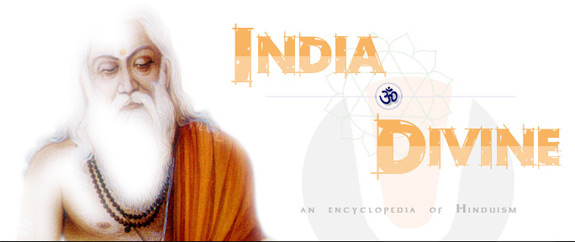Prabhupada: We are speaking of this Krsna consciousness. The message is from the spiritual world. It is not of this material world. Therefore sometimes people may misunderstand. So we have to explain it nicely. Just like they cannot even understand what is the soul. A minute particle of spirit, it is... But they do not understand. Big big scientist, big, big philosophers. But the entire subject matter of Krsna consciousness is not of this material world. All it is of spiritual world, but they have no information of the spirit and the spiritual world. Therefore, sometimes they find it very difficult to understand.David Lawrence: One of the very important enclosures which we mentioned when I came up last, for the teachers' pack this was, not for the actual booklet, was a series of questions, what we would call sticky ones in the West, but I'm sure you'll deal with them with very great ease. I've tried to produce what I thought would be objections to Krsna consciousness. Not as such to theism, but more to Krsna consciousness. And if I could, Mukunda has got them in fact, there's about eight or nine. And if you could be pleased to perhaps answer them on tape, and I can have them transposed. We're going to produce this in the teachers' pack six or seven sheets of cyclo-styled notes for the teachers. So they'll be able to meet the objections perhaps, of their students. Some of the intelligent students may make points which clearly can be met.
Prabhupada: Yes.
David Lawrence: But we can meet them, in a sense, before they're even asked.
Prabhupada: Yes.
David Lawrence: That makes it even more impressive.
Prabhupada: In which point the students may possibly object?
David Lawrence: Well I've mentioned a few points on which... You know, obviously, I've studied a bit more deeply than the average student, because of the university and all this sort of business, which gives a particular form of knowledge.
Prabhupada: Yes.
David Lawrence: Let me think of one, yes, one that I asked which I know Mukunda has already answered for me, but we need it in the teachers' pack, of course, is the fact of the dating of the Vedas. You know, people like some of the archaeologists such as A.L. Basham and Mortimer Wheeler maintain that the Harrapa dig, so to speak, in the Indus Valley and Mahenjo-Daro and all those towns, show the dating of the Vedas in fact to be a great deal later, you know, and therefore to take away, some people would say this, to deprive the Vedas of a certain amount of authority because they no longer, according to these men, would appear to be the most ancient religious scriptures in the world. And that, that sort of question, which...
Prabhupada: Veda means not religion, Veda means knowledge. So if you can trace out the history of knowledge, then you can trace out what is the date of Veda. Can you trace out? When...? Which is the date when knowledge began. Can you trace out?
David Lawrence: I wouldn't think they could.
Prabhupada: Eh?
David Lawrence: I wouldn't think they could.
Prabhupada: So how you can trace out the history of Vedas? Vedas means knowledge. Vedas means knowledge. So first of all find out from which date knowledge began. Then you find out the date of the Vedas.
David Lawrence: Yes, it seemed to me, I tried to read certainly, A.L. Basham...
Prabhupada: Those who know Sanskrit, they know what is the meaning of Veda. Veda means knowledge. Vetti veda-vid jnane. Jnana means knowledge. That means the history of Veda means from the date of creation of this material world. Now find out the date of creation of the material world. Approximately, nobody can give what is the date of. We can, we cannot... Date of Brahma, he got the, first of all, the Vedic knowledge. Now, one day of Brahma you cannot calculate. One day of Brahma. And the... When Brahma's night is there, there is devastation up to some extent. So again in the daytime of Brahma, that creation takes place. There are two kinds of devastation. One devastation is at the night of Brahma and one final devastation is the whole cosmic manifestation finished. So these teeny people, they are after the dates of Vedas, and that is ludicrous, that is...(laughs) Just like there are many microbes, they grow in the evening and die just in the day beginning. So whole night is their span of life. So our life is like that. What history you can write? Therefore, we receive Vedic knowledge from the authorities. And what is the value of these dates?
David Lawrence: (laughs) Indeed. I mean it's the sort of thing that Western scholars excel in, isn't it?
Prabhupada: Suppose if you try to trace out when the human being began calling "mother." Can you trace out the history?
Syamasundara: They try to take away from the Vedas by making it seem very young so that the Bible is older. They think that Vedas came from Bible, many scholars.
Prabhupada: Oh? These rascals think like that?
David Lawrence: Yes, you see they say that the, because the Aryans came from or passed through at least the Middle East, that in fact some of the older parts of the Old Testament predate, so they say, and indeed some of the Egyptian higher, some of the better Egyptian stuff...
Prabhupada: So one should transcend these, what is called, historical references. They calculate in Darwin's theory.
David Lawrence: Darwin's theory's out now isn't it? (laughs) It's sort of old fashioned now. They dispense with these theories as quickly as most people do their newspaper each day.
Prabhupada: (laughs) Yes.
David Lawrence: One day it's in, and the next day it's out. And while it's in, everybody claps and applauds. One or two other points, perhaps I can raise one or two of them. Some of them are longer in fact. An interesting thing that came out of my study of the Christian, or certainly the Jewish tradition, and I wondered, really, on your views on this, whether it relates at all to the Indian one. It seems when you get to the really high spot of Jewish religion, which many people consider the prophets of Judah...,
Prabhupada: What is their high spot?
David Lawrence: Well, exactly,(laughs) that is, in inverted commas.
Prabhupada: They are rotting in the lowest spot, still. What is their high spot?
David Lawrence: Let's think, somebody like, perhaps Isaiah or somebody like this who was a universalist and uh...
Prabhupada: Somebody, somebody says so many things...
David Lawrence: Yes, that's right. Oh yes, I mean if you take them, they all differ in their views. But one of the things, one of the themes that comes through is the idea that...
Prabhupada: Therefore the gentleman the other day was asking, "How is that you say electricity?" Oh you were not present that time? Because we have translated there is no need of sun, there is no need of moon, there is no need of electricity in the spiritual world. So when he heard the word electricity, he became astonished.
Syamasundara: He thought the word did not exist at the time?
Prabhupada: Yes.
David Lawrence: Yes, I must admit I was amazed at that reference, reading that yesterday.
Prabhupada: That frog philosophy is going on. Dr. Frog. He's simply calculating the well, that's all. How there can be Atlantic Ocean? That is frog philosophy. You know frog philosophy? Yes?
David Lawrence: Yes.
Prabhupada: You know? I don't think you know. Who can explain what is that frog philosophy?
Syamasundara: Frog philosophy is trying to imagine the size of the Atlantic Ocean never having left my well.
David Lawrence: Oh, I see, yes. Completely beyond one's experience.
Prabhupada: Yes. No, especially of the Mr. Frog, Dr. Frog. He has never seen what is Atlantic Ocean and somebody informed him, "Oh I have seen such a vast mass of water." "Oh, is it bigger than this well?"
David Lawrence: Yes, beyond his conception.
Prabhupada: These people are like frogs rotting in the well, and what they can understand of the Vedic knowledge?
David Lawrence: Yes. One of the themes, really, that interested me was this yearning, certainly it was true amongst the Jews, to return to a rural background, you know, to a rural sort of setting. I wondered if you felt much of the Vedas was in fact a firm belief an affirmation if you like, that the most true form of life, the most pure form of life is one that's lived alongside nature, not against nature as we seem to be doing in our urban setting.
Prabhupada: What, I don't...
Syamasundara: In the Jewish tradition, they yearn for a life of living on farms, villages, small communities with cows and agriculture.
Prabhupada: Yes.
Syamasundara: Is this also expressed in the Vedas.
Prabhupada: Oh yes.
David Lawrence: You feel that strongly.
Prabhupada: Oh yes. That is real life. Real life means you have to minimize your bodily activities so that you can save time and devote for spiritual understanding. That is real life. And the present civilization based on bodily concept of life is animal life. It is not civilized life. Civilized life means athato brahma jijnasa. When one is advanced so much so that he inquires about the spirit soul. But there is no such inquiry. Like the cats and dogs, they cannot inquire what is spirit soul. So Vedic life means to become free as much as possible from the bodily disturbances. Therefore, the first education is to become brahmacari, celibacy. You see? Now, at the present moment, they are trying to make the abortion as law. But these rascals cannot check their sex life. You see? Their philosophy is that you shall go on with sex life unrestrictedly and when there is pregnancy, kill the child.
David Lawrence: Yes.
Prabhupada: This is their rascal's philosophy. They have no idea that by training one can forget sex life. So if you forget sex life, where is the question of abortion? Where is the question of abortion? But they cannot do that. Therefore, it is said adanta-gobhir visatam tamisram [SB 7.5.30]. By nonrestricted sense enjoyment they are gradually going to the animal, lower grade of life. They cannot explain why there are so many varieties of life. They cannot explain. So this killer of baby within the womb, so the result will be that this man who is, I mean to say, indulging in abortion, he'll be put into the womb, and somebody will kill him. And as many wombs or babies he has killed, he'll have to take so many lives and being killed. So much so that it will be rather impossible for him for hundreds of years not to see the light. He'll remain in the womb and being killed. Does not know the nature's law. One cannot violate the nature's law. You can violate the state law. Suppose you kill somebody, you can escape by trick. But you cannot escape nature's law. As many times you have killed, so many times you have to be killed within the womb. This is nature's law.
David Lawrence: I was very interested to talk to a nurse in one of the main London hospitals only last week in fact, and she was saying that they're having an almost impossible time trying to man these abortion wards now because all the nurses and doctors just don't want to do the work. In some cases, she was saying, that they take a baby from its mother's womb and it's sort of put onto a tray and thrown into a litter bin and you can see it moving!
Prabhupada: Yes.
David Lawrence: And they've had one or two cases at their hospital where they've gone out afterwards and they've seen babies moving! Terrible.
Prabhupada: It has been seen in Calcutta also, in dust bin found out some child, dust bin.
David Lawrence: Terrible. Some are in such an advanced state of pregnancy that clearly life is a strong possibility.
Prabhupada: Not advanced stage, life begins from the very beginning of sex. The living entity is very small. By nature's law, according to his karma, he's sent to the father's semina and that is injected and immediately the two secretions emulsify, the man's and the woman's, and it forms a body just like a pea. That is the formation of body. Now that pea-like form develops gradually. Then first manifestation is the nine holes. Everything is there in the Vedic literature. Nine holes, they have got nine holes. One, two, three, four, five, six, seven, eight, nine. In this way gradually the senses develop and by the time seven months, everything is complete and the living entity's consciousness come back. Prior to the formation of the body, the living entity remains unconscious just like in chloroform, anaesthetic. Then he dreams and then gradually consciousness... At that time he becomes very much upset to come out, come out. Then nature gives him "khut!" He comes out. That's all. This is the process of birth.
David Lawrence: Miracle.
Prabhupada: What do they know? They do not know anything.
David Lawrence: No, no. I was absolutely amazed to read an article...
Prabhupada: This is Vedic knowledge. So you'll get everything perfect. Therefore, how there can be any history? That is the difficulty. We are speaking everything, of the spiritual. Therefore, it is sometimes very difficult for the gross materialist. They are so dull-headed, they cannot understand.
David Lawrence: The British Association which is, many people regard an irrelevant bunch of scientists, who meet once a year, one of the good speeches was in fact given on the question of the value of human life. And one of the points was made there by somebody who has had to talk to these girls who come in to have abortions, some cases their third and fourth abortion, and they're not married of course. And saying that many of the girls regard an abortion in the same way as they regard a shampoo for their hair.
Prabhupada: Yes.
David Lawrence: "O, well you know, hair's got to be washed, we wash hair. Womb's got to be cleaned out, we clean the womb out." Just like that.
Prabhupada: And where is movement in the shampoo? That means that human beings are simply being put into ignorance, animal kingdom. This is modern civilization.
David Lawrence: Yes, yes.
Prabhupada: To keep people in ignorance, in darkness, is ajanat. Ajanat. The Sanskrit word is ajanat. Lokasya ajanat. Ajanat means to keep in darkness. They do not know anything about the importance of life. Ajanat. Yaya sammohito jiva atmanam tri-gunatmakam [SB 1.7.5]. By this ajanat principle a man considers that this, "I am this matter." They are all doing all these things because they have no spiritual understanding.
David Lawrence: That's right.
Prabhupada: Yes. Taking the body as lump of matter. That's all. To break a stone and to kill the body of a child is the same thing. They think like that.
David Lawrence: And yet the incredible thing is the obsession with making life longer. I mean, what is the point of making a life longer that is a worthless life anyway? Because they're so materialistic.
Prabhupada: Yes.
David Lawrence: Take a man, somebody could say he's given a great deal of enjoyment, a man like Walt Disney, you know. He's had his body put into...
Prabhupada: Well, longer life, you can see this tree, you'll find at least five hundred years old. So this kind of longer life, what is the value? What is the value? There are many trees... I have seen one tree in San Francisco, seven thousand years old.
David Lawrence: Oh, the redwood...
Prabhupada: Yes.
David Lawrence: ...the redwoods, yes. Makes Walt Disney look a bit...
Prabhupada: So this kind of longer life, what is the value?
David Lawrence: Yes, you know he had his body put into suspended animation. I don't know what they call it, cytology is it or something? They have them put into chemicals and bathed. Because he died of cancer and he wants to be woken up in about fifty years time when they've got the cure for cancer and then he can live again and make a few more films apparently. (laughter) It's extraordinary attitude to life isn't it really? One of the other problems that I was going to raise, and in fact it appears in the question sheet, it seems to be some, in the Srimad-Bhagavatam, is that the right pronunciation? I always get these things wrong.
Prabhupada: Yes, Bhagavatam.
David Lawrence: A very great deal of what one could call demonology if you like. Now, I confess this raises problems for me. When a book like that...
Prabhupada: Bhagavata was written five thousand years ago.
David Lawrence: Yes, very, very ancient. Is it to be taken, the references say to Putana, is this to be taken...
Prabhupada: It is also fact.
David Lawrence: ...physically or spiritually as a demonic power or what?
Prabhupada: No, no, which one?
David Lawrence: Where, is it the demoness Putana takes Krsna and Krsna sucks her breast?
Syamasundara: Should it be taken literally or allegorically?
Prabhupada: No, literally, literally.
David Lawrence: Yeah, literally as a physical fact.
Prabhupada: Oh yes, oh yes.
David Lawrence: Now, having said that then, if one goes on logically...
Prabhupada: You'll find so many demons like Putana even at the present moment.
David Lawrence: So one could leap from behind a tree, putting it tritely if you like.
Prabhupada: The, the Bhagavatam, there is nothing... well, there are some figurative use. Just like we speak the story of Aesop's fables. That is for instruction. Just like jackal is talking with a lion. You see? So, there are stories like that.
David Lawrence: Yes, there are figurative stories.
Prabhupada: Yes.
David Lawrence: I mean, one or two of the stories there's a reference to Krsna and the unmarried gopis, saying that He treated them like dolls yet they were well pleased with Him. Now, would it be right to say that the main point of that story, rather than...
Prabhupada: Dolls?
David Lawrence: Yes, it says He treated them rather like dolls. It's your own translation on that one. But they were well pleased with Him. Is the point of the story...
Prabhupada: Dolls, dolls means just like doll-player, they make the dolls dance. It is like that.
David Lawrence: Yes, as He wishes.
Prabhupada: Puppets, yes, puppets.
David Lawrence: Yes. I mean is that to be taken again literally or is there, as you say, a figurative meaning there in terms of faith?
Prabhupada: No, that is literally. Because gopis were just dancing according to Krsna's desire. They are so devotees that whatever Krsna desires, they are prepared to do.
David Lawrence: See, without being too irreverent, it seems a strange thing to get young ladies to undress in front of you.
Prabhupada: Therefore I say...
David Lawrence: I'm probably misunderstanding it you see.
Prabhupada: ...it will be difficult for ordinary persons. Still, as far as possible, I have tried to explain for understanding of the ordinary people. By general reading, it is not difficult.
David Lawrence:. This is the sort of problem one comes across, whether in fact... You see, having grown up in what was really a very liberal, critical attitude...
Prabhupada: Therefore, this portion of Krsna's life is depicted on the Tenth Canto. Nine Cantos are devoted to understand Krsna. So without understanding Krsna if one tries to read the life and pastimes of Krsna, it may be misleading.
David Lawrence: Yes, yes. I think somewhere it says...
Prabhupada: Therefore Bhagavata begins, janmady asya yatah [SB 1.1.1], what is the original source of creation. Not abruptly Krsna. Then after developing all such knowledge one can understand what is Krsna. But in the spiritual world there are activities like that. The material world is only perverted reflection of these activities of the spiritual world. Perverted reflections. It is reflection, but perverted. Therefore, it is difficult. Everything is there. Basic principle that Krsna loved the gopis... Gopis were young girls, Krsna was young boy, But the same love between young boy and girl here is lust. Therefore, it is perverted. The reflection is there, but it is not love, it is lust.
David Lawrence: Yes, that's the difference.
Prabhupada: That's the difference.
David Lawrence: Yes. So it's using our experiences and refining them and distilling them and showing what the true value of these experiences is.
Prabhupada: Yes.
David Lawrence: ...the true meaning of them.
Prabhupada: In the gopis' love with Krsna, there is no lust. That is the difference.
David Lawrence: Reverence isn't it, reverence for Him.
Prabhupada: Here, the so-called love is lust only. It is going on in the name of love. Actually it is not love. And because it is not love, therefore such kind of love does not continue very long. It breaks.
David Lawrence: Yes.
Prabhupada: But we don't find in the history of spiritual world the love between the gopis and Krsna broke at any time. That is the difference.
David Lawrence: Yes,yes. Whereas one in three of the Western marriages, so they say, is destined to break.
Prabhupada: Yes.
David Lawrence: That's what they say now, one in three. It's the latest figures.
Prabhupada: The same thing is there, but they are dragging this lusty affairs to Krsna. Generally, the rascals, they paint Krsna's picture with gopis so that their lusty activities may be supported -- Krsna also had like that. This is misunderstanding. They do not take into calculation: Here, so-called love is lust and it breaks. But in the gopis' love with Krsna there is no breaking but increasing of love. So how they can compare Krsna's love with gopis with these lusty affairs?
David Lawrence: I must admit, yes, I've read far enough on to see that and I think this is...
Prabhupada: When we make analogy, the points of similarity must be there. But these rascals are so dull-headed that they have not even logical arguments. Where are the points of similarity? That we are comparing these lusty affairs of this material world with the affairs of Krsna and the gopis? Where is the similarity?
David Lawrence: There's never mention of lust or of any animal desire at all is there?
Prabhupada: No, no.
David Lawrence: It's just reverence and love.
Prabhupada: Just like Krsna used to dance with so many gopis, everything is described there, that they embraced, they kissed, but there is no such thing abortion or contraceptive. (laughter) So these things have to be studied. How we can compare gopis' love with Krsna with these lusty affairs of this material world?
David Lawrence: Can't be done. Another question that raised itself, you'll see in the paper in fact, was the little mention in one of the books that I was reading, not from Krsna consciousness movement, just to get a bit of background, on Lord Caitanya, and it seems to have been...
Prabhupada: Krsna consciousness movement is already there in the Srimad-Bhagavatam, described.
David Lawrence: Yes. If you like, the later manifestation isn't it. Of the avatara.
Prabhupada: We are simply trying to present them, that's all. It is not we have manufactured something, no. There is no question of concoction, manufacturing.
David Lawrence: No. Just passing on what has already been there.
Prabhupada: Yes, it is already there. When we speak of Krsna, Krsna is already there. When we speak of Vrndavana, Vrndavana is already there. It is not that we have manufactured some picture, imagination, no. They take it like that. The rascals take it like that, that it is a kind of imagination of the poet. The Mayavadi philosophers also take like that. But that's not the fact. It is actually presentation of the spiritual facts and as the spiritual activities are quite different from material activities, they misunderstand. They misunderstand.
David Lawrence: Yes. It's one of the interesting features was, of this little bit about Lord Caitanya was in fact that he claimed Him to be pathological.
Prabhupada: Just like...
David Lawrence: You know the manifestations obviously of Krsna consciousness and kirtana and so on. Seems to be obviously you regard as a scurrilous or wrong-headed or a dull-headed field of people who regard His manifestations of God consciousness as verging on madness, or temporary madness. What would you say about that. Obviously you would reject it.
Prabhupada: When a man is himself mad, he'll find others mad.
David Lawrence: Yes, true. (laughter) Yes, he sees a reflection of himself.
Prabhupada: If one is himself deaf, he'll think others are deaf. So atmavat manyate jagat, everyone thinks the whole world is like him. Therefore they think Krsna also like him. Avajananti mam mudha manusim tanum asritam [Bg. 9.11]. That is condemned in the Bhagavad-gita that "These rascals, because I come in human form to benefit them, they take Me as human being." That is mentioned. But these things are taken like that by the mudhas. Mudhas means rascals, asses.
David Lawrence: Really they're just talking, as you say, from within their own experience.
Prabhupada: Yes.
David Lawrence: They're being, lacking in imagination really because they can't imagine what happens when God possesses a man.
Prabhupada: Because Krsna is lifting the Govardhana Hill, they are thinking this is imagination. But if actually Krsna is God, is it very difficult for Him to lift a mountain? He's floating so many heavy planets in the air, so, weightlessness. If Krsna can make weightless so many heavy planets, is it very difficult for Him to make the Govardhana Hill weightless?
David Lawrence: Not at all.
Prabhupada: So these things have to be understood.
David Lawrence: So once again you'd say that this was a...
Prabhupada: Therefore, in the Bhagavad-gita, it is clearly said bhaktya mam abhijanati [Bg. 18.55]. Simply through devotional service one can understand Me. Others will misunderstand. [break]
David Lawrence: Yes, one doesn't become concerned with these what really are the superficials of an inner state. You accept and appreciate the validity of bhakti.
Prabhupada: What is this?
Syamasundara: It's a sentry post for watchguards.
Prabhupada: Oh.
David Lawrence: Once again, many thanks for your tremendous cooperation and as I say I hope it won't put you to too much work. Obviously some of these things have already been met. To a certain extent we've done some of the work already, haven't we?
Prabhupada: Some of our students may read. If it is presented, if it is misrepresented then it is useless to publish.
David Lawrence: I don't want that to happen, you see. This is why I'm so anxious that at every stage it be seen.
Prabhupada: So you read it and find out.
David Lawrence: Will you?
Syamasundara: Sure, sure, sure.
David Lawrence: That will be... I've said to the publishers, as far as I'm concerned, they've given me a date at the end of September, but I've said if the people in the Krsna consciousness movement do not accept what I've put forward as a representative view of their own, then the date's going to go back. I've said that. So that's an accepted idea.
Prabhupada: Hare Krsna. [break]
Syamasundara: ...he's very happy and he's going to, for vacation for one month in September so that he can read and chant for one month undisturbed. He's reading now Krsna Book daily.
Prabhupada: He should, one day should have come here see the Deity.
Syamasundara: He's going to come before he leaves. He's leaving on fifth September.
Prabhupada: Oh, that's nice.
Syamasundara: He's coming next week.
Malati: She is doing her japa.
Prabhupada: All right. (end)










